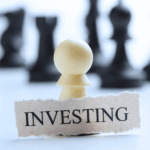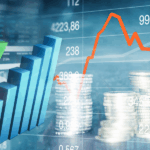The focus on sustainability has seen a resurgence among corporate leaders, as Bain & Company reports a renewed emphasis on integrating sustainability with business strategy. Despite a temporary lull in prioritization, consumer and B2B buyer demand for sustainable options has catalyzed this shift. This development signals a change in perspective for business leaders who now connect sustainability initiatives not only to ethical responsibilities but also to enhanced business value.
Contrasting previous findings, where a decline in focus on sustainability was noted, the latest survey results indicate a significant rebound in importance. While only 34% of CEOs linked sustainability to business value in 2018, this number accelerated to 54% in 2025. This change illustrates a broader trend of aligning sustainability with core operational strategies as opposed to viewing it solely through a compliance or moral framework. Assessment of past data highlights a growing convergence towards embedding sustainable practices as a key business differentiation factor.
How Are B2B Buyers Shifting Their Preferences?
B2B buyers are gravitating towards sustainable options, as revealed by their changing spending habits. For instance, 49% of surveyed businesses are now sourcing more from sustainable suppliers, an increase from 39% last year. This shift underscores a growing recognition of sustainability as a strategic asset rather than a mere regulatory obligation. Planning to prioritize suppliers meeting sustainability criteria over the next few years further demonstrates this trend.
What Is Driving Consumer Adoption of Sustainable Practices?
Data outlines consumer actions aimed at reducing environmental impacts, though cost remains a considerable barrier. Nearly half are already engaging in behaviors like reducing energy use or recycling, yet the price premium for sustainable products remains a significant deterrent. This paradox highlights the tension between consumers’ environmental concerns and financial limitations.
Despite companies discussing sustainability less frequently, the commitment to ambitious targets is evident. Notably, a considerable portion of surveyed companies have increased their Science-Based Targets initiative goals. This positive trend indicates a potential shift towards more actionable strategies, reflecting an acknowledgement of sustainability’s role in future business success.
Incorporating sustainability within company operations had a past emphasis, but attention is increasingly turning to the sustainability of suppliers’ product offerings. This shift reflects evolving consumer priorities that drive companies to reevaluate and adapt their product lines to sustain market competitiveness in sustainability credentials.
Industry leaders like Jean-Charles van den Branden and François Faelli emphasize the dual need for reduced rhetoric and enhanced action. Their insights capture the essence of the evolving approach:
“For sustainability, 2025 is the year CEOs turned down the volume—and accelerated action. Sustainability remains a priority.”
This sentiment affirms the alignment of corporate and consumer sustainability interests.
Despite challenges, the drive towards sustainable business practices aligns with economic interests and consumer demands. As the market increasingly favors environmentally conscious providers, businesses that integrate sustainability into their core strategies may secure competitive advantages. The direction points toward a future where operational feasibility and sustainability become inseparable in achieving business success.










